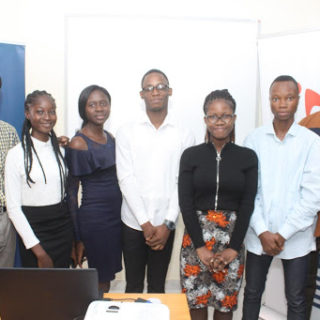We want to know how young people become adults. The question we ask is “What’s your coming of age story?” Every Thursday, we’ll bring you the story one young Nigerian’s journey to adulthood and how it shaped them.
What’s a good word to describe the feeling of comfort in an imperfect situation? ‘Lethargy’ sounds like I’m lazy – I’m not. My mother says you can leave me in a spot as the world collapses and I’ll stay put until something comes close. I move at my own pace, even in the worst situations. I’ve been called many things for this: lazy, unbothered.
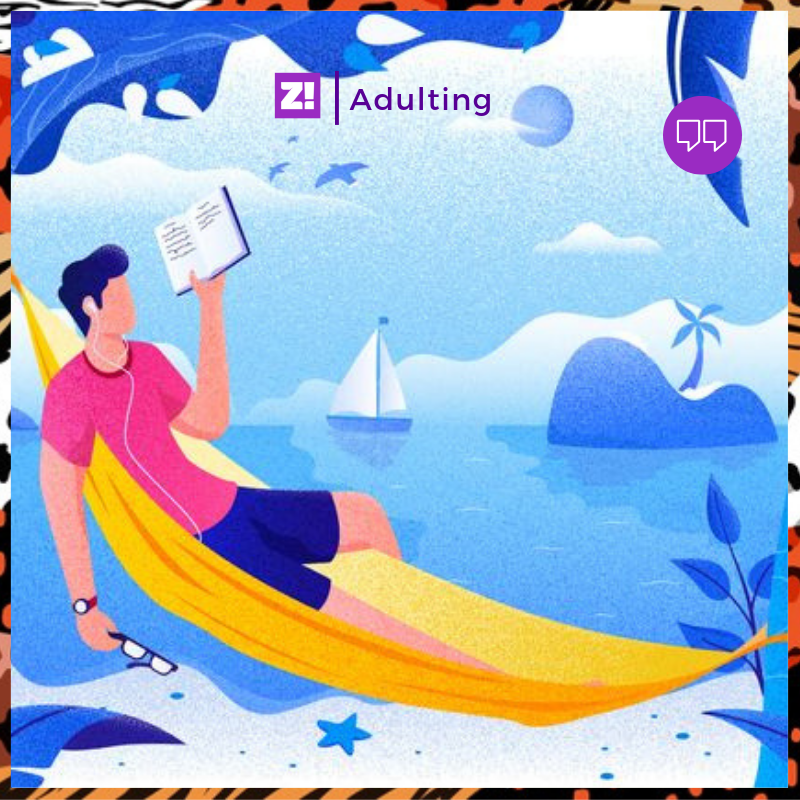
Before those monikers, my role was being the only son of a customs officer. It was an important position. My father was a driven man who gave a bigger share of his life to working and got married in his late 40s, decades after his mates. My mother was 25 at the time they got married. I was born the next year. In family photos of outings during my childhood, we look like three generations – one stern, grey-haired man in flowing traditional wear, a fine woman in her 30s and a little child.
We lived in Bashorun, Ibadan. In the 1970s, it was reserved for wealthy civilians and influential military men. When I was growing up, it wasn’t as exclusive, but life was good.
I went to the best school in Ibadan. My dad’s name got me in and his money kept me there. On the best days, usually Fridays, I’d return home to him and my mum, a full-time housewife, sitting over drinks in the shade of the veranda while the driver pulled into the compound.
Once, when I was 12, I returned from school early for the wrong reasons. The look on my mother’s face changed from fear to shock when I told what happened.
A classmate had made me the butt of a nasty joke, so I played a more practical one on him. He wasn’t the first person in my school who unknowingly sat on a pencil, but my mischief bruised him so hard, he bled. Knowing hell would break loose if his parents showed up, the principal sent me home.
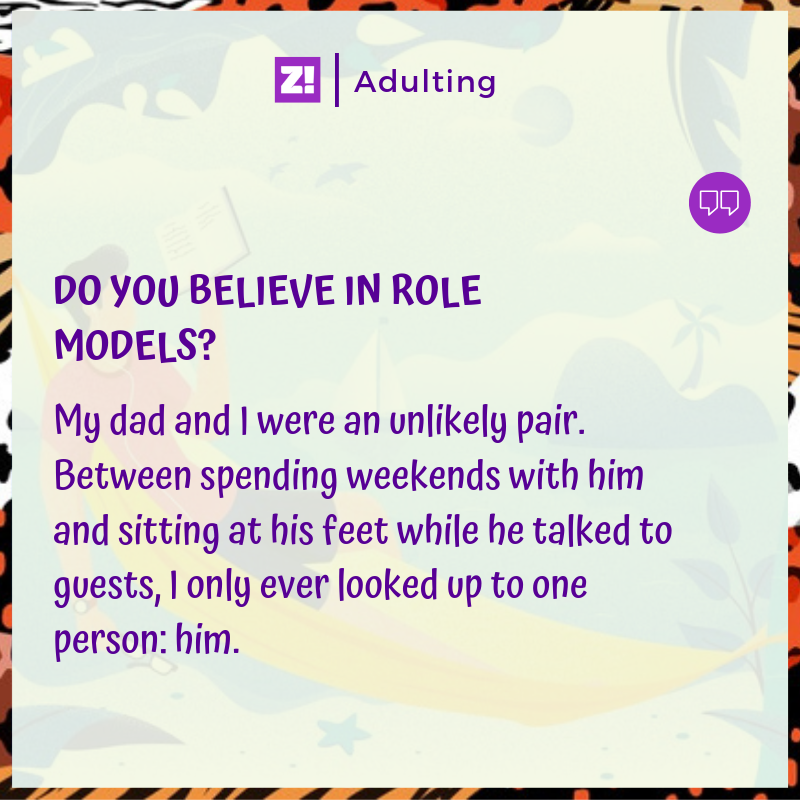
I returned with my dad, apologised and stepped out of the principal’s office on his instruction. That was it. Nobody laid a finger on me, not even him. I swear.
It was his way of getting them to relax. It gave me the impression that people tend to overreact to issues. Perhaps, he wanted them to see that.
I know boys say their fathers are their heroes, but when I look at my father’s photos, I see the only man I’ve ever wanted to become. My dad and I were an unlikely pair. Between spending weekends with him and sitting at his feet while he talked to guests, I only ever looked up to one person: him.
My fairytale was cut short on the 16th of September 2009. My father was 66 when he died – peacefully, I assume, in the backseat of his car on a trip home from Lagos. They say he lived a full life. I don’t know. All I felt was emptiness.
I should have been in my third year studying Psychology at the University of Ibadan when it happened. It was when things had passed and cooled off that I told my mom I hadn’t been a student there for over 6 months.
I was placed on probation after the first session and advised to work on my grades or be withdrawn. But I was too distracted. I had everything I wanted and a two-bedroom at Agbowo. At the end of the first semester, I didn’t have enough attendance to write exams. My time at U.I was done. It became official when the session ended.
My mother was disappointed, but she no fit carry two things wey dey fight to be the one wey dey pain am pass, so she gats fix
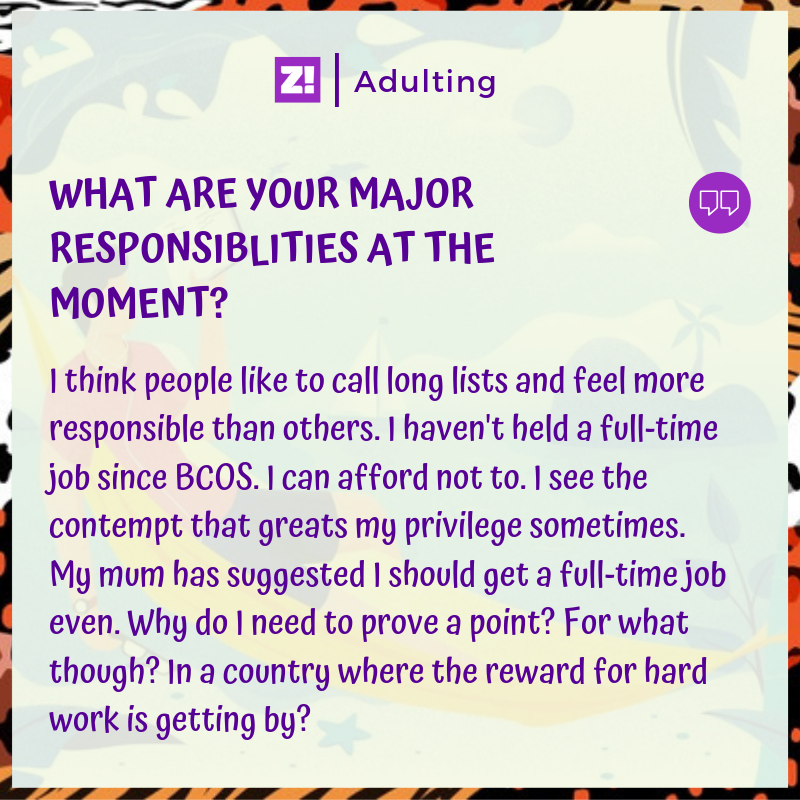
Strings were pulled and I got into the pre-degree program at The Federal University of Technology, Akure (FUTA). Everything started well. Raw regret fuelled a new level of diligence. Starting afresh was simply humbling. But I soon noticed I was on the fringes. It didn’t help that my mum had become tight-fisted after my dad passed. I couldn’t beat them, so I joined them.
I was doing things like travelling to party in Abeokuta for the fear of missing out. FUTA isn’t well-run, so I could skirt the problems that got me sent away from UI. I could catch a cruise, miss classes and pay for grades. I graduated as a 25-year-old who lived a 19-year-old’s life. Youth Service at the Broadcasting Corporation of Oyo State (BCOS) was next, from 2016 to 2017. I practically lived at home.
I think people are eager to project their responsibilities so they can appear more serious adults than others. What’s that? Why would you want to prove you’re better at suffering than others?
I haven’t held a full-time job since BCOS. I can afford not to. My father left everything to my mother and me.
I live with my mother and help manage his investments. That’s making sure no-one sells our land, houses are maintained and tenants pay rent on time. I spend my spare time with friends, travelling or exploring small business openings. Ibadan is a big place and opportunities are opening. Taxify launched here recently. More people are moving from Lagos. Soon our nightlife will start popping properly. I have to get in on that action.
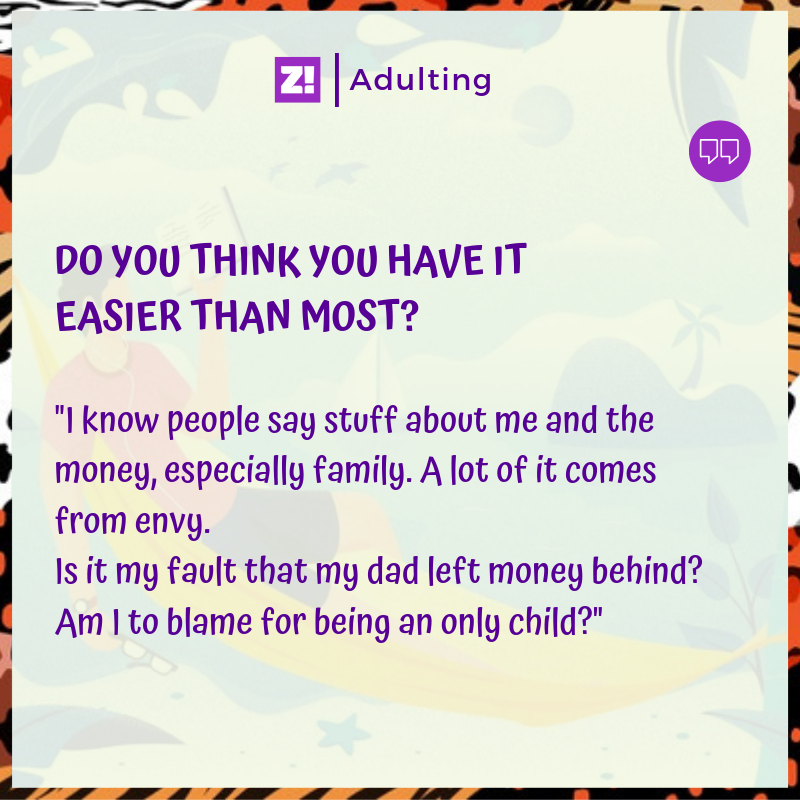
I know people say stuff about me and the money, especially family. A lot of it comes from envy. Is it my fault that my dad left money behind? Am I to blame for being an only child?
My mum has suggested I get a full-time job. She once asked if I would like to move to one of our flats. Why should I leave a house that’s big enough for me, my mum, extended family and friends, just to prove a point? For what though? In a country where the reward for hard work is getting by? Half the people who yarn about me want to be me.
Am I adulting? Yes, but I think if you ask most people, they’ll disagree because of my privilege. But what does it matter? I like what I have and I don’t see the point in plunging myself into adversity to prove something.
I miss my father a lot. Maybe I’d have a better sense of how I’m doing if he was still here. It would be fun to ask if he thinks I’m doing okay.


